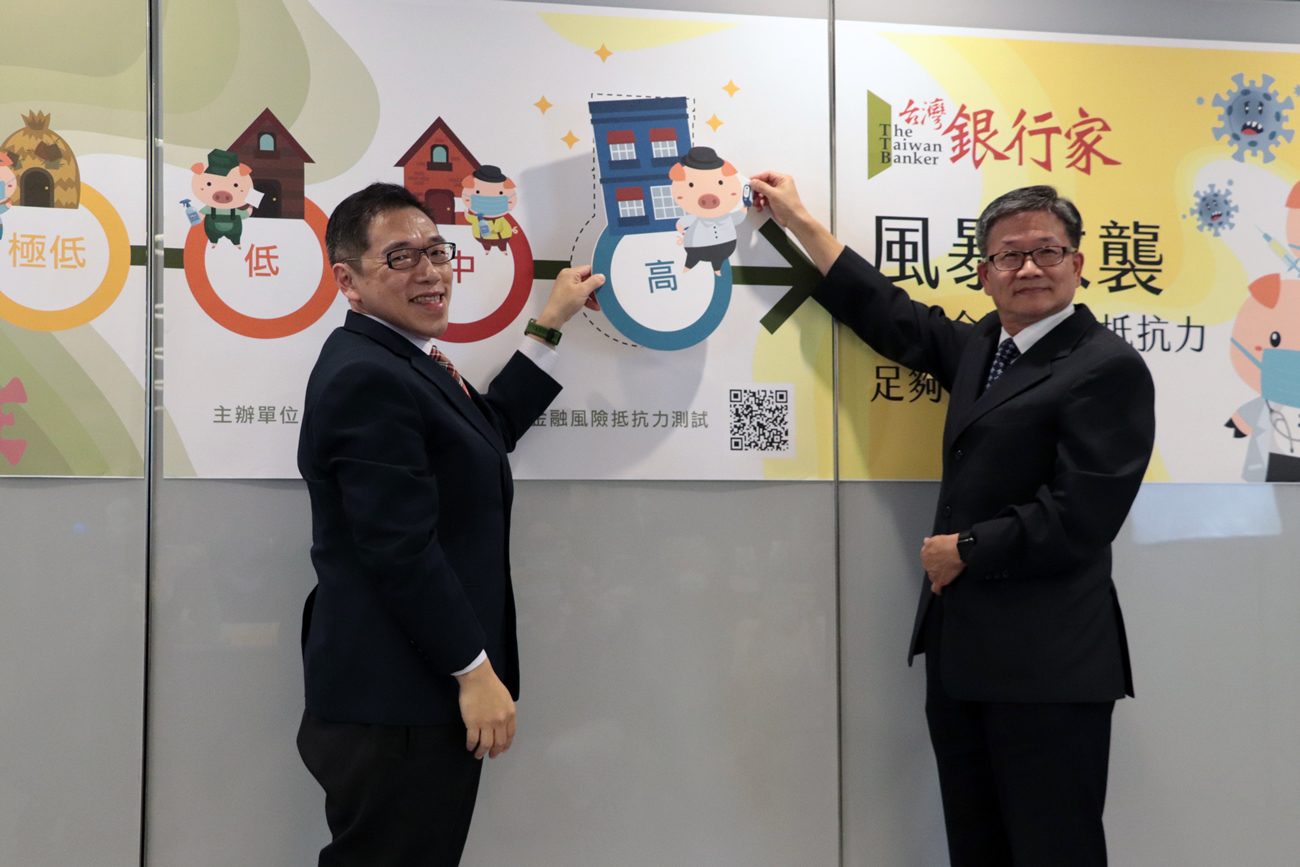Financial Resilience Amidst the Storm: Are you Prepared?April 28, 2020

TAIPEI – As COVID-19 cases and deaths continue to rise around the world, economic activity has stopped, and central banks around the world are taking strong measures to rescue markets. Lower interest rates will not cause the virus to disappear, however, and the situation remains volatile. In this context, the Taiwan Academy of Banking and Finance (TABF) has conducted an online test of Taiwan’s financial resilience.
Taiwanese Resilience is Only Marginal
The average result for “financial resilience” among the first 1,068 responses was only 61 points. Among its four facets, the score for “financial knowledge and behavior” was the lowest, at only 43 points. The highest scores were “economic resources,” at 70 points, and “social capital,” at 66. Regarding these results, TABF President Hank Huang said that although Taiwanese people have a good level of savings and a spirit of mutual assistance, financial education and habits must be strengthened, as well as knowledge of financial products and services.
The scores did not differ significantly by gender: 62 for men and 60 for women. By age, those under 19 scored the worst for reliance, at 48. Those aged 40-64 scored the best, but still only at 64. By occupation, those in agriculture and fisheries, laborers, and temporary workers scored the lowest, at 45-48. By education, those with a primary, middle school, or high school education scored the lowest, at 54, while those with an undergraduate or post-graduate education scored 64. Geographically, respondents living in the north and urban areas scored better. Respondents in Taipei, New Taipei City, and Keelung scored 62, while those in Kaohsiung, Pingtung, Hualien, and Taitung only scored 52.
Wu Tang-chieh, Secretary-general of the Taiwan Financial Services Roundtable, said that financial resilience is like human immunity. Everyone has different strength levels, and they should be objectively measured and compared. Therefore, it’s important to measure general financial resilience on a a national level, distinguish vulnerable groups, and understand weak points and blind spots. Developed countries have used a similar approach to guide their financial inclusion policies.
President Huang also emphasized that both the quantity and quality of financial education are keys to stronger financial resilience. Effective education is not just a matter of widespread promotion, and it should also target specific weaknesses. In this light, TABF used an Australian survey design to develop a local resilience survey. It was posted online as a free online assessment, aiming not only to help people find out their financial weaknesses and blind spots, but also to bring together financial knowledge, making finance truly useful to people’s lives
TABF has released an easy-to-use app so that anyone can understand how prepared they are for financial risks. Only through long-term planning – made possible by knowledge – can we improve our resilience.
Huang recommends that test-takers keep four strategies in mind: continuously improving your financial knowledge in order to promptly adjust incorrect behavior, avoiding debt by paying your bills on time, saving in normal times as a way to invest in the future, and avoiding the margins – maintaining friendly social relationships and close relations with friends and family so that you don’t need to depend on banks when crises arrive.
With incomes broadly affected by the pandemic, nobody knows when the next impact may come or what it may entail. Only through advance preparation can we strengthen our resilience to unknown risks. Scan the code now to find out your score!